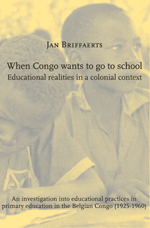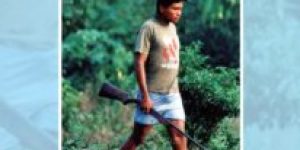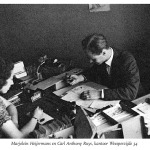When Congo Wants To Go To School – Part III – Acti Cesa
No Comments yet A few years ago Catherine Coquery-Vidrovitch wrote about the results of the educational system in the Belgian Congo that “(This) in depth work concerning mentalities was started to be felt from 1945. [i] We have tried to approach the issue of the effects of the missionary education from two angles. On the one hand, on the basis of the written testimonies that can be found, from which it is apparent how the Congolese reacted, how they acted and what they thought about that education. Publications in which the opinion of the Congolese pupils and former pupils can be found were sought as contemporary sources. Concrete, extensive and detailed research was carried out into one of those publications, La Voix du Congolais. On the other hand, it is possible to make use of memories. These are preferably the memories of the people themselves. A number of interviews with the Congolese helped complement the very sparse literature available in this regard.
A few years ago Catherine Coquery-Vidrovitch wrote about the results of the educational system in the Belgian Congo that “(This) in depth work concerning mentalities was started to be felt from 1945. [i] We have tried to approach the issue of the effects of the missionary education from two angles. On the one hand, on the basis of the written testimonies that can be found, from which it is apparent how the Congolese reacted, how they acted and what they thought about that education. Publications in which the opinion of the Congolese pupils and former pupils can be found were sought as contemporary sources. Concrete, extensive and detailed research was carried out into one of those publications, La Voix du Congolais. On the other hand, it is possible to make use of memories. These are preferably the memories of the people themselves. A number of interviews with the Congolese helped complement the very sparse literature available in this regard.
When considering this theme, the original boundaries of the research subject were slightly deviated from. The research subject was deviated from as regards the material, as the
interviews are situated both within but also partly outside the mission area of the MSC. The existing research results that were consulted and used also relate to areas outside the Tshuapa region. Moreover, the research subject was deviated from with regard to content due to the conclusion that research into the effects of education is inextricably connected to the “memory” of the colonial period. Consequently, it seemed interesting to us to take the memories of former pupils into account. That has the undeniable advantage that the image drawn may be confronted to a certain extent with the memories of the Congolese.
In the previous four chapters, written material was primarily collected that spoke about the events that took place in and around the school in the mission area of the MSC. The image created as a result is perhaps still not very clear but the outlines may be discerned. Naturally coloured by all the information I collected myself as a researcher and undoubtedly also coloured by the information I did not collect, I did not think it very useful to consider all that material again in a conclusive chapter and to attempt to distil a summarising image from that.
I will therefore restrict my conclusion to an indication of the image drawn and the formulation of a number of considerations regarding the way in which this past is handled and the role this research may hopefully play in it.
NOTE:
[i] Tshimanga, C. (2001). Jeunesse, formation et société au Congo/Kinshasa 1890-1960 . Paris: L’Harmattan. p. 5 (préface). [original quotation in French]
You May Also Like
Comments
Leave a Reply





